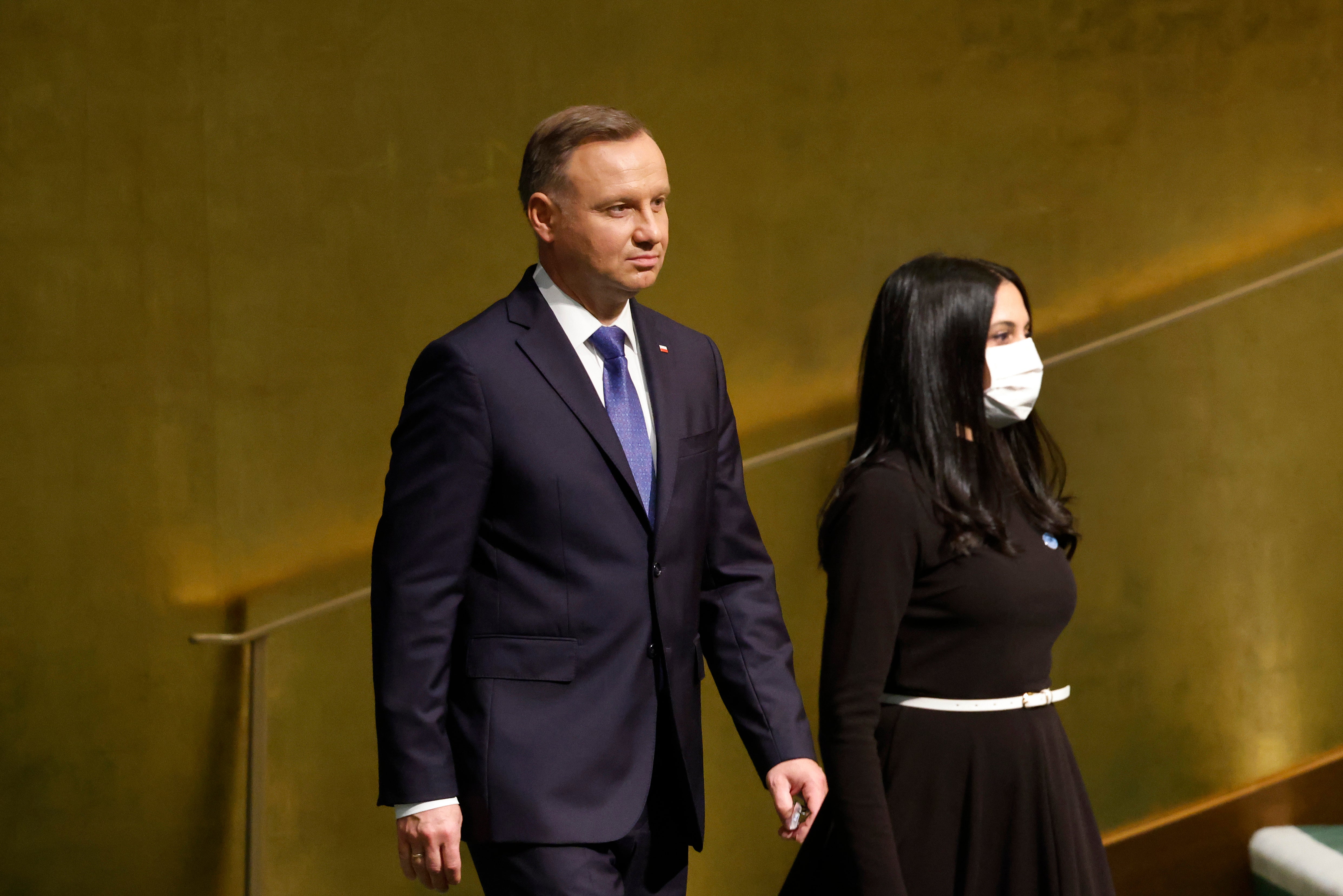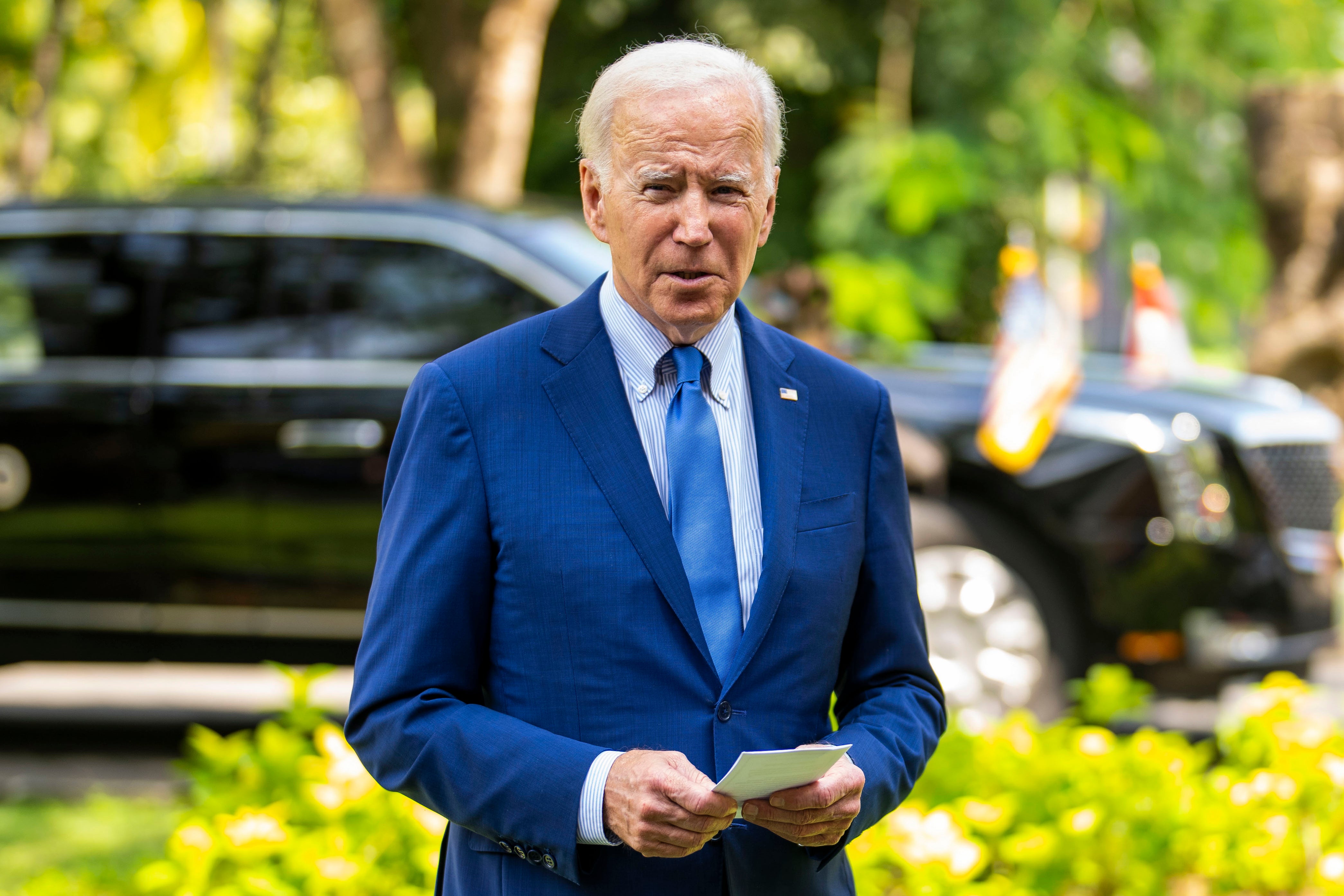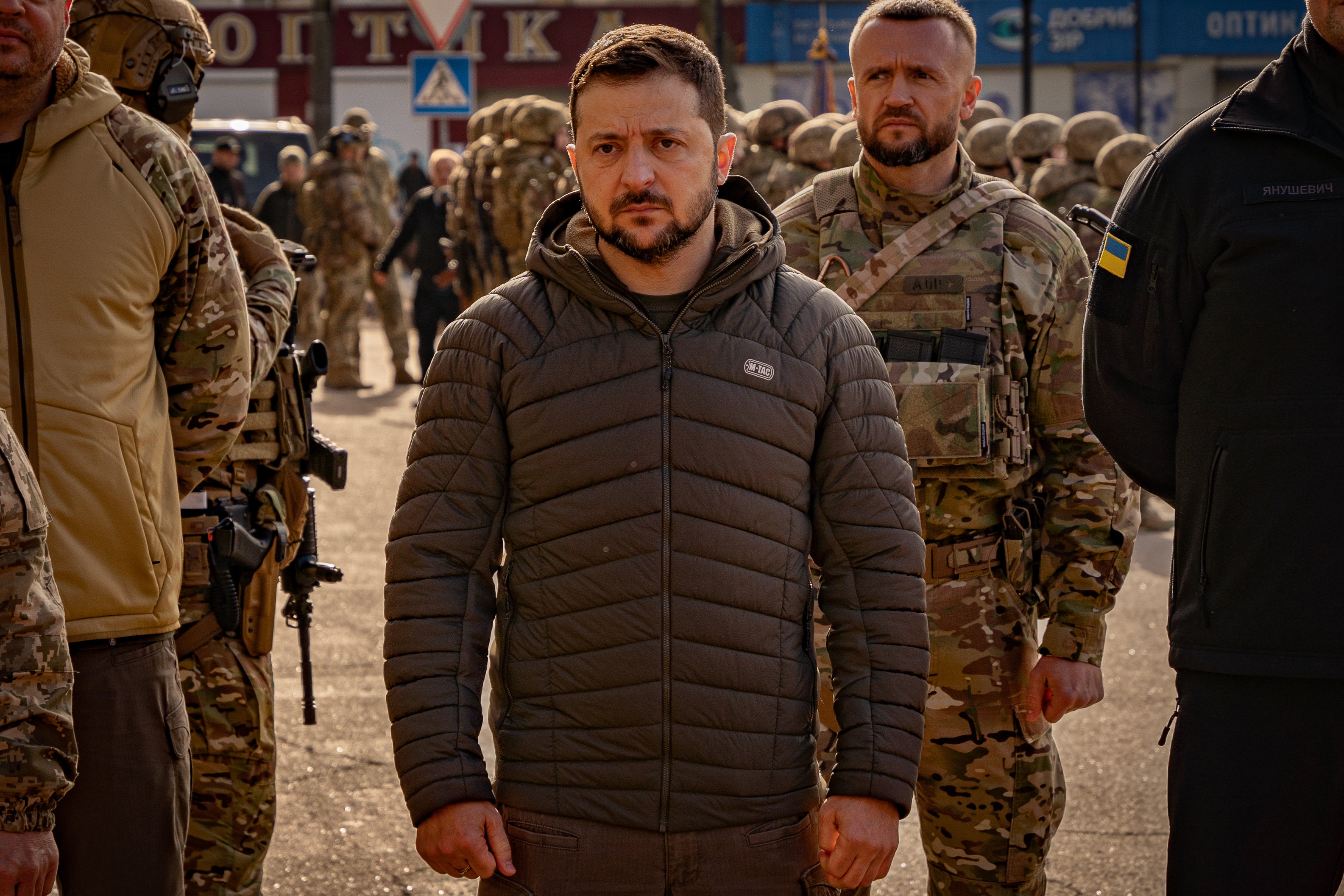
A wayward rocket crossed the border between Ukraine and Poland at approximately 3.40pm on Tuesday, striking a grain silo in a Polish village and killing two people.
The incident in Przewodow, Lublin, marked the first time since the Russian invasion began in late February that citizens of a Nato member state had been caught up in the bloodshed.
Ukraine itself is not yet a member of the military alliance but Poland is and - given that all 30 members are bound by the North Atlantic Treaty’s terms to come to the defence of any one of its allies under attack from a foreign power - the episode threatened to mark a serious escalation of the war.
Fortunately, cooler heads prevailed and, following a swift investigation by Polish intelligence officials, it became clear that, for once, Kremlin denials of responsibility were likely to be accurate. Poland said the missile, although “Russian made”, had actually been a Soviet-era relic from Ukraine’s arsenal that had been fired in an attempt to bring down one of the aggressor’s projectiles targeting Lviv.
While the conclusion of this dramatic episode has no doubt come as a relief to millions of frightened observers, the incident itself has also served to cast a fresh spotlight on the international community’s responsibilities towards Ukraine, which it has supplied with weapons, aid, training and humanitarian support but declined to back militarily, repeatedly rejecting calls for the imposition of a no-fly zone over the country.
Here’s a reminder of two days that shook Europe:
The news of the fatal strike in Przewodow was first broken on Tuesday evening around two hours after it took place, with the Associated Press newswire citing an unnamed US intelligence official in its reporting.
Polish president Andrzej Duda sounded the alarm shortly afterwards when he gave a statement saying: “We do not have any conclusive evidence at the moment as to who launched this missile... It was most likely a Russian-made missile, but this is all still under investigation at the moment.”
He called for calm, urging the international community not to jump to conclusions, but suggested his country could propose triggering Article 4 of Nato’s founding treaty, which requires a formal consultation between the allies whenever a signatory state believes its “territorial integrity, political independence or security” is under threat.
His prime minister, Mateusz Morawiecki, meanwhile called an urgent meeting of the country’s security and defence councils and foreign minister Zbigniew Rau summoned the Russian ambassador to Poland in order to “demand immediate detailed explanations”.

Ukraine’s president, Volodymyr Zelensky, however, insisted he was in no doubt that Moscow was to blame for the tragedy.
He commented: “Russian missiles hit Poland. The longer Russia feels impunity, the more threats there will be to anyone within reach of Russian missiles. To fire missiles at Nato territory! This is a Russian missile attack on collective security! This is a very significant escalation. We must act.”
Mr Zelensky’s adviser, Mykhailo Podolyak, claimed that the strike was not an accident but instead a deliberately planned “hello” from Russian forces.
“It happens when evil goes unpunished and politicians engage in pacification of the aggressor,” Mr Podolyak said, adding that Moscow had “disguised whatever happened as a mistake”.
As was to be expected, Russia’s defence ministry responded to this by emphatically denying firing the missile, insisting instead that the story had been fabricated by the Polish press as a “deliberate provocation”.
Vladimir Putin’s spokesman Dmitry Peskov likewise claimed to have no knowledge of the incident, which had taken place on a day in which Russian forces had fired more than 85 long-range KH-555 cruise missiles and Iranian Shahed 36 suicide drones on Ukrainian targets, bombarding infrastructure across the country in order to leave citizens without basic amenities like electricity and running water.
As night dawned, with the diplomatic situation highly fraught and the Pentagon scrambling to piece together the facts across the Atlantic, European leaders began to put in frantic calls to President Duda offering their support while the Czech Republic and Slovakia wasted little in coming forward publicly to denounce Russia.
Nato secretary general Jens Stoltenberg said his organisation was “monitoring” the situation.

With Rishi Sunak away attending the G20 summit in Bali, Indonesia, it was left to foreign secretary James Cleverly to reach out to Warsaw on Britain’s behalf.
Overnight, it emerged that three American intelligence officials, again unnamed, had reported that the missile had in fact been fired by Ukrainian forces aiming at an incoming Russian projectile.
In Bali, US president Joe Biden and secretary of state Antony Blinken were awoken in the early hours of Wednesday morning to be briefed on the situation by phone by defence secretary Lloyd Austin and chairman of the joint chiefs of staff Mark Milley.
Both men then spoke to their Polish counterparts by phone and quickly called an emergency meeting of fellow leaders also attending the summit to discuss the matter, with British, French, German, Spanish and Italian leaders all taking part in the talks.
One exception was Turkish president Recep Tayyip Erdogan, a friend of Mr Putin, who insisted he believed Russia’s denials.
“We offer our full support for and assistance with Poland’s ongoing investigation. We agree to remain in close touch to determine appropriate next steps as the investigation proceeds,” the leaders said afterwards.
“We reaffirm our steadfast support for Ukraine and the Ukrainian people in the face of ongoing Russian aggression, as well as our continued readiness to hold Russia accountable for its brazen attacks on Ukrainian communities.”
Asked by a reporter about whether he personally believed the Kremlin’s forces had fired the deadly rocket, Mr Biden answered: “I don’t want to say that until we completely investigate it, but it is unlikely in the lines of the trajectory that it was fired from Russia, but we’ll see.”

Mr Sunak likewise expressed his “whole-hearted support” for Poland but stressed it was crucial to “establish the facts” before acting.
Back in Europe, President Duda modified his remarks of the previous evening after being briefed on the latest intelligence and said: “From the information that we and our allies have, it was an S-300 rocket made in the Soviet Union, an old rocket and there is no evidence that it was launched by the Russian side. It is highly probable that it was fired by Ukrainian anti-aircraft defence.
“We have no proof at this point to suggest the missile was fired by the Russian side. Ukraine’s defence was launching their missiles in various directions and it is highly probable that one of these missiles unfortunately fell on Polish territory.”
Mr Stoltenberg, emerging from an emergency North Atlantic Council meeting in Brussels, agreed that the missile was most likely to have been fired by the defending side but said: “Let me be clear, this is not Ukraine’s fault. Russia bears ultimate responsibility as it continues its illegal war against Ukraine.”
With the international consensus now firmly behind the explanation that the episode was an “unfortunate accident” rather than a deliberate Russian provocation intended to escalate the conflict, the rest of Europe could perhaps be forgiven for breathing a huge collective sigh of relief.

But one person who insisted he was not convinced was Mr Zelensky, who said with defiance in a TV address: “I have no doubt that it was not our missile.”
Senior Ukrainian defence official Oleg Danilov meanwhile claimed Kyiv had evidence of a “Russian trace” in the incident, without giving any details.
Mr Zelensky called for Ukrainian officials to be allowed to join the investigation at the crash site, a condition Poland said would also require the approval of Washington before granting.
That had still yet to take place by Thursday, leaving Mr Zelensky to complain: “I don’t know what happened. We don’t know for sure. The world does not know. But I am sure that it was a Russian missile, I am sure that we fired from air defence systems.”
His argument has since been dismissed by Mr Biden, who reminded him: “That’s not the evidence.”







